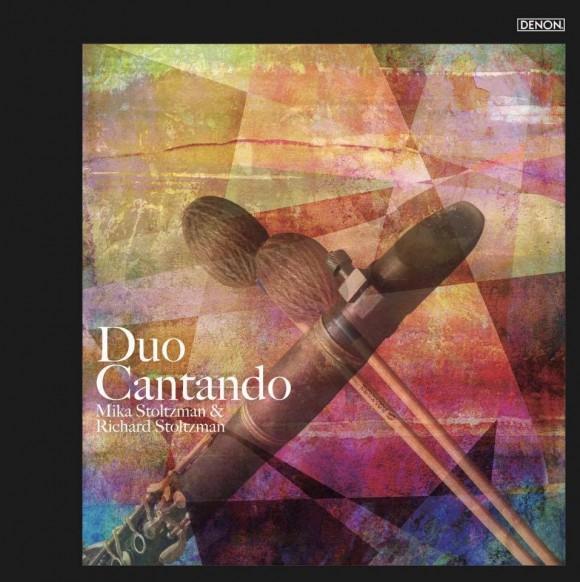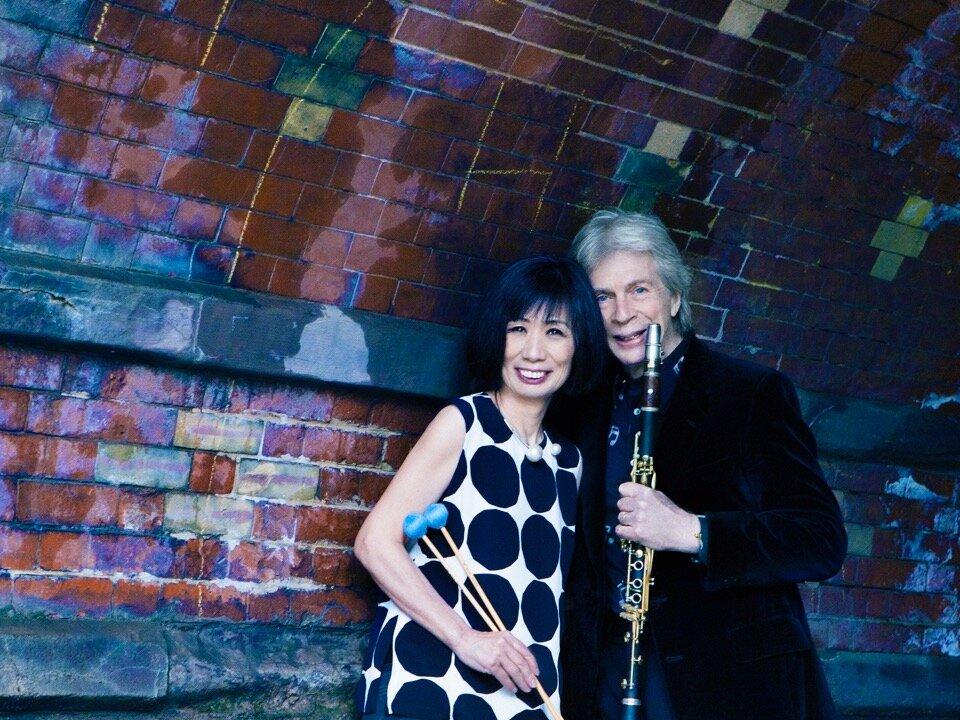“Duo Cantando” (released through the Savoy Label Group) is a new recording by the husband and wife team of Mika Stoltzman and Richard Stoltzman.
Richard Stoltzman is one of the most celebrated clarinet players in the world. A two-time Grammy winner, he gave the first clarinet recitals at both the Hollywood Bowl and Carnegie Hall, and in 1986 became the first wind player to receive the Avery Fisher Prize. He was a founding member of the chamber quartet Tashi in 1973 and has performed as soloist with more than 100 orchestras. He has commissioned works from leading composers and also plays jazz and world music.
Mika Stoltzman is a world class marimba player. Born in Japan, she has also performed in major concert halls around the world, including a number of performances at Carnegie Hall as well as at jazz festivals. Like her husband, she is equally at home in classical music and jazz. In fact, she has studied with noted jazz vibes player, Mike Mainieri.
The new album is produced by Steve Epstein, who just won a Grammy this year for the cast album of “Hello Dolly.”
The first track on the CD is the melancholy and haunting “Waltz Cantando” by Bill Douglas. He is a Canadian bassoon player and composer, who was a classmate of Richard’s at Yale School of Music. They have toured intermittently together for over 30 years.
The sprightly “Diamond Dance,” another composition by Douglas, has the feel of an Irish folk song.
The Stoltzmans are joined on “Sea Journey” by the composer, Chick Corea, on piano.
Corea’s “Concerto #1, Part III was written for a piano soloist and orchestra. Mika gives a virtuoso performance with the marimba taking the pianist’s part. The Boston Modern Orchestra Project is conducted by Gil Rose. Richard doesn’t play on this piece.







